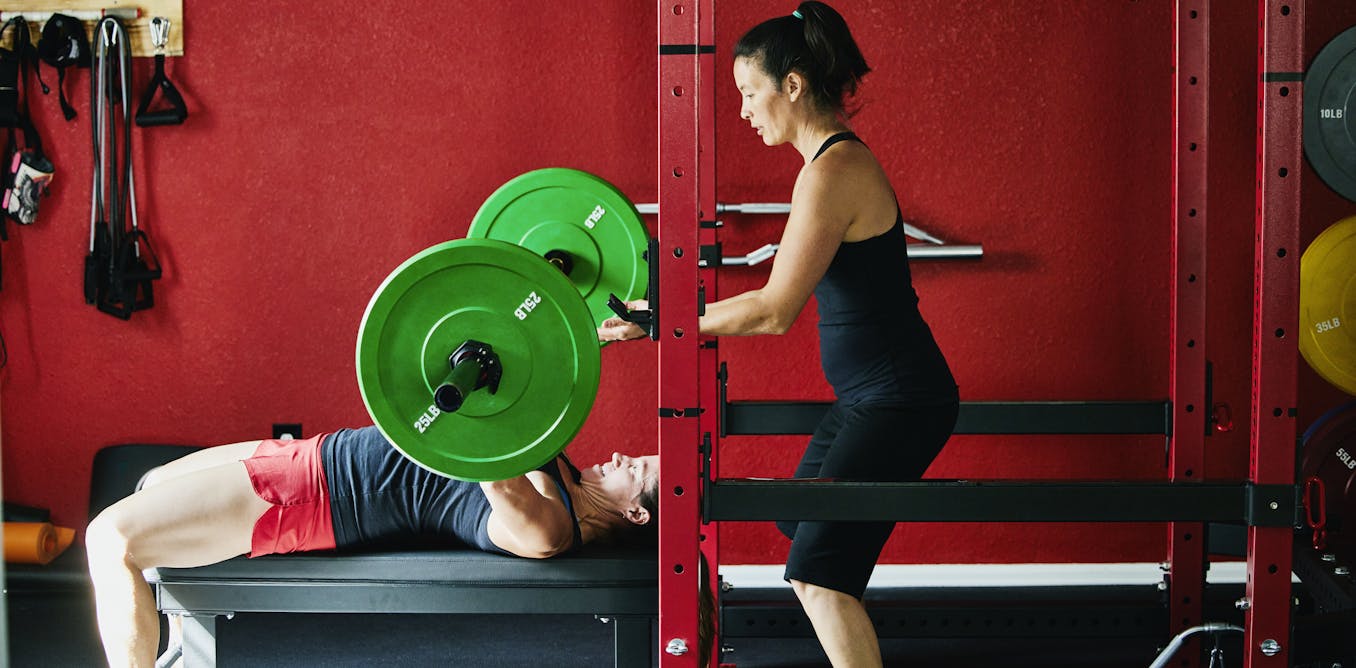Blog
Should I increase weights at the gym? How often? And by how much?
Many of us go to the gym to bulk up. But how does it actually work?
Lifting weights increases the tension on muscle fibers and causes metabolic waste products (such as lactate and hydrogen) to accumulate and become inflamed in muscle tissue.
These signals tell your muscles to adapt and become stronger.
However, if your goal is to build muscle, lifting the same weight the same number of times a week will not be enough; you need to constantly increase the weight or perform more repetitions. This is known as “progressive overload“.
So how do you know when to add weight? And how much to add? Let’s take a look.
Knowing how much you can increase
No matter how interested you are, the exact rate at which your muscles are developing is largely out of your control.
Your genetics probably play a role. Some people just adapt to lifting weights faster than otherswhich means they may gain weight faster.
However, lifestyle factors are also important.
Your body will be able to adapt when you have enough of it to sleepeat enough protein and hold life stress to a minimum. Otherwise, your progress will likely be slower.
If you’re new to strength training, you’ll likely progress faster than someone who’s been training for years. This is sometimes called “newbie’s gain” – especially noticeable in first year of training.
But the more you train, the better your body adapts. Basically, the closer you are to your genetic “ceiling” – the natural limit of how much you can carry – the you will improve slower.
2 methods to gain weight
There are many ways to do this increase weight in the gym. But we will focus on two good ones.
If you are a beginner, use “linear progress” is great. This means adding a small amount of weight (e.g. 2.5 kg) every week or two while trying to maintain the same number of repetitions – or “reps”.
For example, in the first week you can do five repetitions on the leg press with a load of 50 kg. Then in weeks two and three you increase your reps to five at 52.5 kg, and in weeks four or five you do five reps at 55 kg.
However, you will reach a point where you can’t just add the same weight every few weeks. At this point you can try something like “double progressionmethod.
Using this approach, you would choose a set and rep range, for example three sets of 8-12 reps. When you finally can do three sets of 12 reps, you increase the weight slightly.
With the new, higher weight, you can only do eight reps per set. So work on slowly increasing your reps until you’re back to three sets of 12.
Then repeat the process: add some weight and start again with eight repetitions.
How do I know when I’m ready to lift more?
If the weights feel too light or you can easily complete all the prescribed sets and reps, it may be time to increase them.
However, you can add weight even if it still feels like a challenge.
Research shows that most people overestimate how hard they work in the gym underestimate the importance they can lift or how many reps they can do.
That’s why it’s a good idea to keep a journal where you can track your progress. This allows you to look back and try to beat last week’s result – either by increasing the weight or adding another rep or two to your set.
You won’t beat your journal every week. However, if your goal is to gain weight, it can help you stay on track and know what to aim for to keep getting stronger.
MelkiNimages/Getty
When should I let go?
Two signs may suggest that you need to back off a bit.
First, if the way you perform reps changes dramatically as you increase the weight, it may suggest that you are simply making the movement easier rather than making it stronger.
For example, if you add weight to your squat but start the squat shallower, it probably won’t increase the load on your muscles.
Secondly, if you feel extremely tired or feel like you are doing it weaker every weekyou may have to take it It’s easy to regain strength within a week. This can be a sign of overtraining, which often happens when people don’t allow themselves adequate rest between sessions.
Can you gain weight too quickly?
Strength training is incredibly safe – especially compared to other sports.
Sometimes, however, it’s a good idea to slow down your exercises, especially if you’re new to weight training. You will find that you can increase your strength very quickly. But it’s also as you learn to perform the movements correctly and your body adapts to the new stress.
So keeping your weight gain small (for example, just 5 pounds every few weeks) will give you the opportunity to refine your technique and gradually build tolerance. This may also help with protection against injuries.
Finally, don’t stress if you can’t gain weight for a few weeks (or even months).
If training still seems difficult, you can be sure that it will help you build muscle and become stronger.

